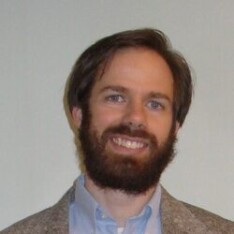Confusing Liberty with Power

“The world has never had a good definition of the word liberty, and the American people, just now, are much in want of one.” -Abraham Lincoln
So Friedrich Hayek opens his book The Constitution of Liberty. Those words are just as descriptive of the world today as they were in Lincoln’s time. Arguments over the nature of liberty are not only dividing the political left from the political right, they are also causing fissures among conservatives and libertarians: New Right, Post-Liberal, NeoCon, NatCon, FreeCon, Libertarian – people are searching for a label to put on a package of beliefs about society and government, not least of which is the nature and purpose of liberty.
I don’t propose to settle the debate over the meaning of liberty here. Rather, I want to highlight a recent abuse of the word and remind people of the incisive arguments Hayek made about liberty over sixty years ago.
But first, the abuse.
Sohrab Ahmari recently published a provocative book called Tyranny, Inc.: How Private Power Crushed American Liberty – and What to Do About It. My colleague Samuel Gregg has already reviewed it at length. But I want to accentuate Ahmari’s abuse of the word “liberty” because it undergirds his entire argument and is in the very title of the book.
This abuse or confusion about liberty is widespread. We can see it in James K. Galbraith’s favorable review advocating “countervailing power” in the market. We can also see it in the Rebuilding American Capitalism report. These authors are concerned about uncertainty, limited choices, power, family formation, and inequality, not liberty. As Hayek notes, the oldest and fullest sense of liberty means freedom from coercion – that is, freedom to act according to your own plans and goals rather than according to someone else’s.
That’s it. Liberty does not equal happiness. Nor does it guarantee it.
Liberty, defined as freedom from the arbitrary wills of others, also does not mean unconstrained choice. As Hayek points out, a rock climber with only one handhold option to continue his ascent cannot be said to be “coerced.” Nor, if that rock climber fell into a crevasse and had no way out, could we appropriately call him oppressed, except in a metaphorical sense. There are no violations of liberty here, even though there is nothing the climber can do. He has a different kind of problem.
And so it often is in cases that many people call violations or infringements on liberty – from limited job opportunities to social media censorship to unhappiness. None of these things are good, and we should think about how to change them. But to argue that people’s rights or liberty have been violated in these cases puts the wrong foot forward. Such claims distract us from the real issues while opening the door to all kinds of abuse in the name of promoting “liberty.”
For example, Amari’s argument implies that liberty corresponds to wealth. Poor people have the least liberty and rich people have the most because of the differing resources and options they have. Hayek notes that people who confuse liberty with “the power to satisfy our wishes, or the extent of the choice of alternatives open to us” will come to just such a conclusion: identifying “liberty with wealth.”
They are also likely to confuse liberty with political participation – a belief common among post-liberals. Yet Hayek warns that “a free people in this sense is not necessarily a people of free men; nor need one share in this collective freedom to be free as an individual.” In fact, western civilization has recognized the dignity (and liberty) of all men regardless of wealth or status, and the equal protection of the law extending to all persons, be they rich or poor, liked or unliked, for centuries.
Hayek makes compelling arguments for the efficiency, productivity, and innovation that stem from limiting coercion as much as possible by governing society through clear, stable, general rules. He wrote one of the most famous articles in economics describing how freely set prices within a system of private property transmit knowledge that free people can act upon given their local circumstances and their individual plans.
But we should also consider the ethical dimension of the liberty that Hayek champions and post-liberals dismiss. Hayek writes: “Coercion is evil precisely because it thus eliminates an individual as a thinking and valuing person and makes him a bare tool in the achievement of the ends of another.” We rob people of their moral agency when we force them to follow our plans and work towards our goals against their will.
Amari may not like the options many blue-collar workers have, but it is an unfounded leap to call them oppressed, coerced, or lacking in liberty. Such a view diminishes their moral agency and the importance of self-direction. It also distorts ideas of cooperation, consent, power, and the purpose of law.
The road Ahmari and others who abuse the notion of negative liberty want to travel involves eroding rules, laws, and structures in society, like weakening or watering down corporate law, or property rights, or punishing people and companies we dislike and replacing them with the legislators’ goals. Yet in a free society, people have the responsibility, and the privilege, of navigating the world under a clear set of rules and institutions as they pursue what they see as good and right.
Arguing that we should undermine institutions and erode the rule of law for the “public good” differs little from Rousseau’s subversive, and nonsensical, claim that people “must be forced to be free.”










